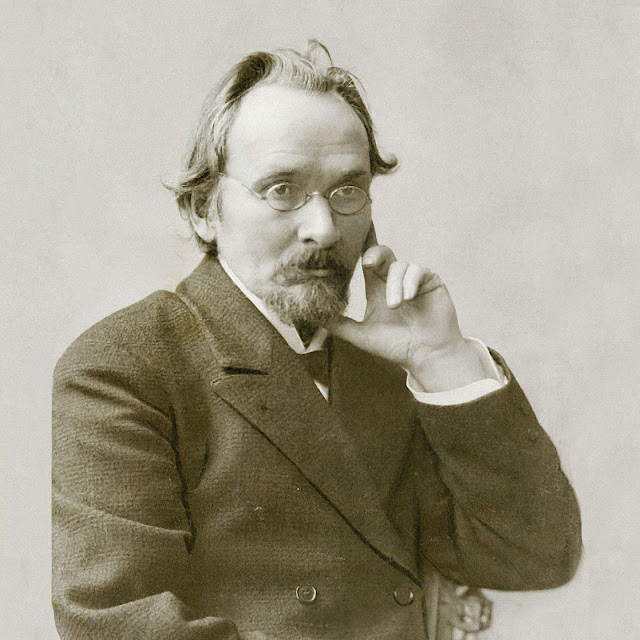Complete List of All Poems Translated into English on Blog, as of the End of June, 2021
Translations
of Russian Poetry into English
Posted
on Blog, “U.R. Bowie on Russian Literature”
Anna Akhmatova:
“Vse raskhishcheno, predano, prodano” (“Everything’s
plundered, betrayed, in ruin’s jaws”)
“My ne umeem proshchat’sja” (“We don’t know how to say
goodbye”)
“A ty dumal ja tozhe takaja” (“So you took me for some kind
of wifey lightweight”)
“Ja nauchilas’ prosto, mudro zhit’” (“Now I’ve learned
simply and wisely to live”)
“Iul’ 1914” (“July, 1914”)
“Bezhetsk”
Nikolai Aseev:
“Khor vershin” (“Choirs in the Heights”)
Eduard Bagritsky:
“Ja sladko iznemog ot tishiny i snov” (“So sweetly enervated
I, by silence and by dreams”)
“Arbuz” (“The Watermelon”)
K.D. Balmont:
Translation of Shelly sonnet “Ozymandias” (“Ozimandija”)
Aleksandr Blok:
“O doblestjakh, o podvigakh, o slave” (“While that chaste
picture frame”)
“Noch’, Ulitsa, Fonar’, Apteka” (“Night. Street. Lamplight.
Pharmacy”)
“Devushka pela v tserkovnom khore” (“In the choir of a
church a young girl was singing”)
Ivan Bunin:
“Na rasput’e” (“Where Paths Diverge”)
“Skazka o koze” (“The Tale of the Goat”)
“L’et bez konsta. V lesu tuman” (“My Dear Lord God [“Endless
rain, and forest fog”])
“Ritm” (“Rhythm”)
“Portret” (“The Portrait”)
“Temdzhid”
“Les shumit nevnjatnym, rovnim shumom” (“An even, hazy hum
runs through the glade”)
“Parus” (“The Sail”)
“Shestikrylyj” (“The Six-Winged Seraph”)
“Khudozhnik” (“The Artist”)
“Spokojnyj vzor, podobnyj vzoru lani” (“The tranquil gaze,
your eyes so like a doe’s”)
“Val’s” (“The Waltz”)
“Nastanet den’, ischeznu ja” (“The day will come, I’ll
disappear”)
Igor Chinnov:
“Disney World”
“Kazhdyj sgniet (i gnienem ochistitsja)” (“Each of us rots,
and through rotting is cleansed”)
“Zhil da byl Ivan Ivanych” (“There walked this earth one
Clyde B. Wright”)
“Ne kazhetsja li tebe” (“Don’t you feel”)
“Serdtse sozhmetsja, ispugannyj ezhik” (“Our hearts will
cower, frightened hedgehogs”)
Sergei Esenin:
“My teper’ ukhodim ponemnogu” (“One by one we all are now
departing”)
A.A. Fet:
“Ne vorchi, moj kot murlyka” (“Stop your purring, grumbler
cat”)
“Eshe vesny dushistoj nega” (“In rapture steeped, sweet
fragrant spring”)
“Burja na nebe vechernem” (“Storm in the sky of the
gloaming”)
“Ja prishel k tebe s privetom” (“I come to you at break of
day”)
“Kakaja kholodnaja osen’” (“How cold are the woods in the
fall”)
“Lastochki” (“Swallows”)
“Byl chudnyj majskij den’ v Moskve” (“A wondrous Moscow day
in May”)
“Shopot, robkoe dykhan’e” (“Whispering and Timid Breathing”)
“Tol’ko v mire i est’, chto tenistyj” (“Distinctive on earth
of all things that exist”)
“Chuja vnushennyj drugimi otvet” (“Sensing that loved ones
have told you, ‘Say no’ [Portents])”
“Babochka” (“Butterfly”)
Zinaida Gippius:
“Neljubov’” (“Unlove”)
Nikolai Gumilyov:
“Ja i Vy” (“I and You”)
“Voin Agamemnona” (“Agamemnon’s Warrior”)
Georgi Ivanov:
“S bezchelovechnoju sud’boj” (“In any polemic with inhuman
fate”)
Vladislav Khodasevich:
“Pered zerkalom” (“Standing in front of a mirror”)
“Vesennij lepet ne razlezhit” (“If verses’ teeth are tightly
clenched”)
Mikhail Lermontov:
“Parus” (“The Sail”)
“Predskazanie” (“A Portent of Calamity”)
“Angel” (“The Angel”)
“Nebo i zvezdy” (“Sky and Stars”)
“Gornye vershiny” (“Alpine peaks quiescent”)
Osip Mandelstam:
“Skripachka” (“Violinist”)
“Na strashnoj vysote bluzhdajushchij ogon’” (“Petropolis
Dying”)
“Mne kholodno. Prozrachnaja vesna” (“I’m cold. The season of
transparence”)
“V Petropole prozrachnom my umrem” (“In transparent
Petropolis we all will die”)
Samuil Marshak:
Translation of Robert Burns, “Honest Poverty” (“Chestnaja
bednost’”)
Translation of Shakespeare Sonnet No. 116, “To part the meld
of two hearts intermingled” (“Meshat’ soedinen’ju dvukh serdets”)
Translation of Robert Burns, “Coming Through the Rye”
(“Probirajas’ do kalitki”)
Vladimir Mayakovsky:
“Rossii” (“To Russia [The Overseas Ostrich]”)
“Khoroshee otnoshenie k loshadjam” (“Treating Horsies Nice”)
Boris Pasternak:
“Gefsimanskij sad” (“The Garden of Gethsemane”)
“V bol’nitse” (“In the Hospital”)
Aleksandr Pushkin:
“Pora, moj drug, pora” (“Now is the time, my friend”)
“Vospominanie” (“Remembrance”)
“Otsy pustynnyki i zheny neporochny” (“The anchorites in
deserts and the women pious, chaste”)
“Dar naprasnyj, dar sluchajnyj” (Based on pure chance, a
useless gift”)
Konstantin Sluchevsky:
“Posle kazni v Zheneve” (“An Execution in Geneva”)
Fedor Sologub:
“Vysoka luna gospodnja” (“High in the sky is God’s moon”)
Nikolai Tikhonov:
“Veter” (“The Wind”)
A.K Tolstoy:
“Ballada o kamergere Delarju” (“The Ballad of Chamberlain
Delarue”)
“Tropar’” (“Troparion from
the Poem ‘John Damascene’”)
Fedor Tyutchev:
“Pesok sypuchij po koleni” (“Up to our axles in crumbly
sand”)
“Silentium”
“Ot zhizni toj chto bushevala zdes’” (“The life that once in
these parts teemed”)
“Nakanune godovshchiny 4 avgusta 1864 g.” (“On the Eve of
the Anniversary of Aug. 4, 1864”)
“Slyzy ljudskie, o slyzy ljudskie” (“O tears of humanity”)
“Vesennjaja Groza” (“Spring Thunderstorm”)
Marina Tsvetaeva:
“Uzh skol’ko ikh upalo v etu bezdnu” (“So many have been
swallowed up and perished”)
“Popytka revnosti” (“An Attempt at Jealousy”)
“Mne nravitsja, chto Vy bol’ny ne mnoj” (“I’m glad that you’re
not indisposed with feelings steeped in me”)
Evgenij Vinokurov:
“Vesna” (“Spring”)
Maximillian Voloshin:
“Svyataja Rus’” (“Holy Rus”)












